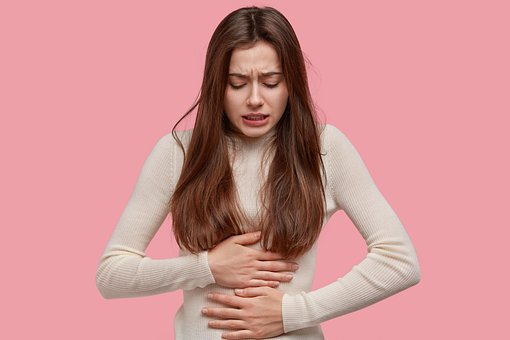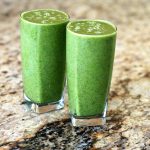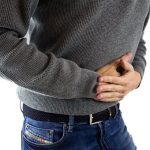That “time of the month” arrives with all the fanfare one would expect with an entourage of sidekicks including mood swings, bloating, food cravings, ballooning breasts, uncontrollable irritability, and of course, tears. PMS is not something that is easy to deal with, you can’t avoid it, escape it, or ignore it.
PMS refers to a group of physical and emotional symptoms that typically occur a week or two before a person’s period. There are a range of different effects that menstruation has on women, with some feeling moodier than usual, while others feel bloated and achy.
Most women share a hate-hate relationship with PMS. Youth and inexperience are not a determining factor here. PMS makes you crazy every month.
If you have an imbalance in your estrogen and progesterone levels, combined with other factors like stress, insufficient sleep, and a poor diet, this can have a negative effect on your emotional health.
Although raiding the medicine cabinet is not the only way to deal with PMS, it is still a problem that needs to be addressed.
Natural Remedies for PMS
1. Sweat It Out
If you are looking to improve your health and fitness, then committing to an exercise routine is one of the best things you can do. Studies have found that working out can help improve your PMS symptoms.
Your body releases pain-busting endorphins, pleasure-inducing dopamine, and depression-fighting serotonin when you work out.
When you sweat and stretch, the blood flow to the uterine, abdominal, and lower-back muscles increases, which then helps ease the tension that leads to cramps.
Studies have found that participating in 20-30 minutes of exercise that gets your heart rate up can help to ease PMS symptoms.
Exercise can improve your mood by releasing endorphins. Additionally, it can increase your energy levels. There are many benefits to yoga, including reducing stress and pain, and helping you sleep better at night.
What you do for exercise is up to you- you could go for a walk, go swimming, do some hula hooping, or do some yoga. Online, you can find yoga videos that focus on postures specifically designed to help with period pains and cramps.
Find something you enjoy and that works for you. its best to reap the benefits by doing some sort of exercise regularly throughout your cycle, rather then just as you approach your period.
During our period, our muscles, tendons, and ligaments may be more vulnerable to injury. If you are worried about how your workout will affect your menstrual cycle, you may want to keep the intensity moderate.
2. Fix Your Sleep
Fatigue is one of the significant reasons for mood swings and irritability related to PMS. And there is a reason behind it. Before periods, you may feel more fatigued due to a lack of serotonin in the brain.
The chemical that regulates mood and social behavior is serotonin. PMS symptoms like flatulence, bloating, constipation, acidity, body cramps, and headaches make the body more lethargic.
Make sure to get eight hours of sleep to avoid feeling tired and cranky from PMS.
3. Get on the Mat to De-Stress
Have you ever wondered why you feel more angry, weepy, anxious, or irritable before your periods? Your progesterone levels are highest right before your period, which causes your hormones to become imbalanced.
If you’re experiencing increased levels of stress, it may be due to your body producing more cortisol, the stress hormone. All of this leads to an eruption of emotions.
Any stress reliever, such as yoga or meditation, is good for keeping your cortisol levels in check. Yoga and meditation can help alleviate PMS symptoms by reducing anxiety and promoting happiness.
3. Cut the Sugar and Lay Off Caffeine
There are some things that are never good for your body and health. Sugar and caffeine are two of those things. Your body craves sugar during the menstrual cycle, but it is a vicious cycle.
If you give in to your sugar craving, your blood glucose levels will rapidly increase and make your PMS symptoms worse. If you’re looking to avoid sugar but still satisfy your sweet tooth, try switching to natural sweeteners like soaked figs, honey, stevia, raisins, or fruit. These options won’t cause your glucose levels to fluctuate as much as sugar would.
Looking for comfort in a coffee mug? There is none in it! Caffeine is particularly bad for people with PMS because it is dehydrating. This can cause PMS symptoms like anxiety and lead to sleep deprivation.
During this time you should have more water. So, sip on some herbal teas. If you really can’t give up coffee, then you can have one cup.
4. Stay Hydrated
Is there a problem that water cannot solve? This is because water is necessary for all known forms of life. It is called the source of life for a reason because water is necessary for all known forms of life.
Water is essential for keeping our bodies functioning properly. It helps to reduce bloating, constipation, and lethargy, and it helps to maintain our energy levels. Drinking water not only helps to keep your body hydrated, but it also helps to flush out your system so that your body holds onto less liquid.
5. Take the Help of Herbs
Some herbs are the best-kept secret to good health. For PMS you can try the following herbs:
Ajwaine Gur Khadha in the mid-morning. If you take it a few days before your periods, it will help control indigestion, which is caused by PMS. During periods, it helps reduce menstrual cramps. It also helps blood flow easily and with little pain.
Ashwagandha tea before bedtime, as it beats adrenal fatigue.
Cinnamon milk is a good option as it contains anti-inflammatory and antispasmodic properties, which means it can help relieve muscle spasms.
Mulethi Roots (Licorice Root) can help to reduce spasms and ease pain because they have antispasmodic properties, which can relieve muscle spasms in the abdomen and legs during PMS. Mulethi contains antioxidants known as flavonoids, which improve circulation, relieve tissue damage, and reduce inflammation.
Chamomile Tea can help to soothe the stomach, relieve colic in babies, and stop muscle spasms. Because chamomile tea has antispasmodic and anti-anxiety properties it helps in relieving pains and regulating emotions.
6. Eat Less More Often
It is better to eat several small meals and snacks during the day than to eat three large meals. This can help reduce uncomfortable premenstrual bloating and stabilize blood sugar levels. You’ll stay energized and feel calmer throughout the day.
7. Eat More Complex Carbs and Wholegrains
Would you like to know why, just before your period arrives, you have a sudden urge to eat three pizzas, a jumbo bag of chips, and a chocolate bar the size of a brick? The reason for our increased cravings is thought to be due to the fluctuations in our hormones, which causes our blood sugar levels to drop.
This causes the infamous chocolate cravings late at night. Our serotonin and dopamine hormone levels (the ‘feel good’ chemicals in our brain) also decrease. This can make us crave foods that give us a quick boost in energy.
Our body uses carbohydrates to make serotonin. The drop in serotonin during our period can lead us to crave sweet or salty foods high in carbohydrates.
While carbs may initially provide us with energy, many of these foods will cause our blood sugar and hormone levels to drop sharply as the effects wear off quickly.
Try Complex Carbohydrates with a Lower GI – These foods will have a less drastic effect on your blood sugar levels, helping to avoid big spikes and dips. Some healthier carbohydrate options include wholegrain breads and pastas, rice, sweet potatoes, lentils, porridge, and oatcakes.
8. Massage
Many of the symptoms of PMS can be reduced with massage.
There are several ways to ease the symptoms of PMS through massage, including self-massage, enlisting the help of a friend, or seeing a qualified professional. Some professionals offer specialized treatments specifically for PMS.
Try massaging your lower abdomen in a light, circular motion to help reduce pain. You should only be touched in a way that makes you feel good during a massage. If you don’t want to be touched at all, that’s perfectly understandable.
9. Pleasure
Spending time on activities that make you feel good, either alone or with others, can help ease some PMS symptoms.
Besides the obvious benefits of increased serotonin and reduced stress, orgasms may also help relieve premenstrual cramping. Some people find that orgasming can help reduce the pain of headaches and migraines. What’s not to like?!
Some other great methods for reducing stress and managing PMS are things like: exercising; meditating, doing mindfulness and breathing exercises; talking to a good friend, or making yourself comfortable and taking a day off.
10. Turn Down the Heat
If you experience hot, sweaty nights in the build up to your period, it is because of your changing hormone levels. Your body may be more sensitive to temperature changes during this point in your cycle.
Some tips that can help at night are:
- Cooling your bedroom down before bedtime: open a window or use a fan
- Change your bedding to lighter and more breathable covers, ideally made from natural fibers
- Place a reusable ice pack under your pillow. If you wake up in the night you can just flip your pillow round to cool your face
- Keep cold or iced water by your bed- an insulated flask or bottle with ice cubes in can help
- Avoid eating spicy foods and drinking alcohol before bed- both can raise your temperature.
11. Load Up On These Nutrients
Calcium
If you’re not getting enough calcium, it could lead to some serious problems. PMS and hormonal imbalance are two of the things that can be caused by a calcium deficiency. It is believed that this research could help significantly reduce premenstrual depression, fatigue, edema, and PMS pain in women.
The following are healthy sources: sesame seeds, almonds, cashews, green leafy veggies, and lentils.
Vitamin D
Vitamin D can significantly improve your health, and not just your PMS symptoms. Increasing your vitamin D intake may improve your body’s inflammatory response and ability to fight antioxidants, which could lead to a decrease in the frequency and severity of PMS symptoms.
Healthy sources of vitamin D include exposure to sunlight and supplements as needed to maintain current levels.
Research has shown that magnesium supplements can significantly reduce PMS symptoms like mood swings, irritability, depression, anxiety, bloating, fluid retention, breast tenderness, sugar cravings, headaches and poor sleep. PMS affects around 75 percent of women.
Magnesium is a cofactor in more than 300 enzyme systems that regulates protein synthesis, muscle and nerve function, blood glucose control, and blood pressure regulation.
Healthy sources: Green leafy vegetables, such as spinach, legumes, nuts, seeds, and whole grains
Zinc
You need Zinc to activate B6. Zinc is an essential nutrient that boosts the immune system, helps regulate metabolism, aids growth, improves bone strength and helps wounds heal. Zinc is an antioxidant that can lower risk for many chronic diseases.
In a 2017 study zinc sulfate supplementation was associated with improvement of PMS symptoms.
Healthy sources: chicken, red meat, beans, fish, fortified cereals
12. Reduce Stress
A study from 2010 found that women who were stressed during the early stages of their menstrual cycle were more likely to experience severe PMS symptoms later on in their cycle.
Stress is a part of life that can’t be avoided and it can even lead to positive outcomes. Always pay attention to and take seriously any stress that is ongoing or levels that are high.
There are many ways to reduce stress and manage PMS. What is most effective will be entirely specific to you and your circumstances.
Conclusion
PMS refers to the physical, emotional, and behavioral symptoms that are commonly experienced in the lead-up to and during a person’s period. The duration of ovulation symptoms varies from person to person. For some, it may last only a day or two, while others may experience symptoms starting soon after ovulation and lasting over a week.
There are a lot of ways to try to make your PMS symptoms better and to get through this time. What works for some people might not work for others. Sometimes it just takes a bit of trial and error to find the natural method that works best for you.
Women’s Defense is a uniquely formulated supplement using all natural ingredients from around the world to help a woman’s body have healthy immune function, support proper blood glucose levels, increase energy, vitality and endurance.









